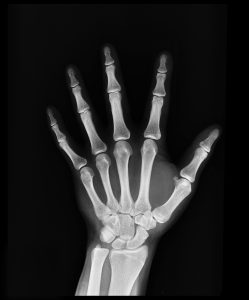Carpal Tunnel Syndrome (CTS) is a common condition characterized by pain, numbness, and tingling in the hand and arm. Exploring the underlying causes, recognizing the symptoms, and understanding available treatment options are essential for managing CTS and improving quality of life.
Causes of Carpal Tunnel Syndrome:
- Repetitive Hand and Wrist Movements: Performing repetitive tasks or activities that involve prolonged or forceful use of the hands and wrists can contribute to the development of CTS.
- Anatomical Factors: Certain anatomical features, such as a narrow carpal tunnel or abnormalities in the wrist bones, may increase the risk of compression of the median nerve.
- Medical Conditions: Underlying medical conditions such as diabetes, rheumatoid arthritis, and thyroid disorders can predispose individuals to nerve compression and CTS.
- Pregnancy: Hormonal changes and fluid retention during pregnancy can increase pressure on the median nerve, leading to CTS symptoms.
Symptoms of Carpal Tunnel Syndrome:
- Numbness and Tingling: Numbness and tingling sensation in the thumb, index, middle, and half of the ring finger are common symptoms of CTS.
- Pain and Discomfort: Pain and discomfort may radiate from the wrist to the palm, fingers, or forearm, worsening at night or with certain hand movements.
- Weakness: Weakness and difficulty gripping objects or performing fine motor tasks may occur as CTS progresses.
Treatment Options for Carpal Tunnel Syndrome:
- Conservative Treatments:
- Wrist Splinting: Wearing a splint at night to keep the wrist in a neutral position can alleviate pressure on the median nerve and reduce symptoms.
- Activity Modification: Avoiding repetitive hand and wrist movements or taking frequent breaks can help alleviate symptoms.
- Physical Therapy: Specific exercises and stretches can improve wrist flexibility and strengthen the muscles supporting the wrist.
- Medications:
- Nonsteroidal Anti-Inflammatory Drugs (NSAIDs): Over-the-counter NSAIDs may help reduce pain and inflammation associated with CTS.
- Corticosteroid Injections: Injecting corticosteroids into the carpal tunnel can provide temporary relief from symptoms.
- Surgical Interventions:
- Carpal Tunnel Release Surgery: In severe cases or when conservative treatments fail to provide relief, surgery may be recommended to release the pressure on the median nerve.
Preventive Measures:
- Practice proper ergonomics at workstations to reduce strain on the wrists and hands.
- Take regular breaks from repetitive tasks and perform wrist exercises to prevent stiffness and tension.
- Maintain a healthy weight and lifestyle to reduce the risk of underlying medical conditions associated with CTS.
At IGAKU, we understand the impact of Carpal Tunnel Syndrome on daily functioning. Book a consultation with IGAKU to receive personalized guidance on managing CTS and improving hand health.
Read our other articles here.
- IGAKUhttps://igaku.co/blog/author/igaku/
- IGAKUhttps://igaku.co/blog/author/igaku/
- IGAKUhttps://igaku.co/blog/author/igaku/
- IGAKUhttps://igaku.co/blog/author/igaku/


